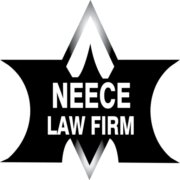Best Commercial Real Estate Lawyers in United States
Share your needs with us, get contacted by law firms.
Free. Takes 2 min.
Free Guide to Hiring a Real Estate Lawyer
Or refine your search by selecting a city:
List of the best lawyers in United States
About Commercial Real Estate Law in United States
Commercial real estate law in the United States encompasses legal issues pertaining to commercial property transactions and developments. This can involve the acquisition, management, leasing, and disposal of real estate intended for business activities. The laws are governed by a mixture of federal, state, and local regulations, making the field complex. These laws ensure the rights and responsibilities of parties involved are upheld, protect land use and zoning, handle financing issues, and oversee compliance with environmental regulations and building codes.
Why You May Need a Lawyer
Engaging a lawyer specializing in commercial real estate is crucial due to the complicated nature of such transactions. Common situations where legal assistance is beneficial include:
- Purchasing or Selling Property: To conduct due diligence, draft and review contracts, and ensure the transaction meets all legal requirements.
- Leasing Commercial Space: To negotiate lease terms, address tenant or landlord disputes, and manage regulatory compliance.
- Development and Zoning Issues: To acquire necessary permits and navigate zoning laws or land use restrictions.
- Environmental Compliance: To ensure adherence to environmental regulations that may impact property use or value.
- Dispute Resolution: To handle litigation or arbitration related to breaches of contract, boundary disputes, or construction defects.
Local Laws Overview
Local laws can significantly impact commercial real estate transactions. Important aspects to consider include:
- Zoning Laws: Regulations that dictate land use and what kind of structures can be built or utilized on a property.
- Building Codes: Standards for construction that ensure safety and compliance with local regulations.
- Environmental Regulations: Rules intended to protect the environment that may affect the development or use of property.
- Property Tax Regulations: Locally determined tax rates and assessments can influence the cost-effectiveness of holding property.
- Easements and Rights of Way: Legal permissions related to access and usage of certain parts of a property that may be necessary for development or used by third parties.
Frequently Asked Questions
What is the difference between commercial and residential real estate?
Commercial real estate refers to property used for business purposes, whereas residential real estate is used for housing individuals or families. The legal and financial aspects of commercial real estate tend to be more complex.
Do I need a lawyer when leasing commercial property?
While not legally required, hiring a lawyer can be beneficial to understand lease terms, safeguard your interests, and prevent future disputes.
What should I know about property inspections?
Inspections are crucial for identifying potential issues with a property, such as structural problems or environmental hazards, which could impact its value or usability.
How does zoning impact commercial real estate?
Zoning laws dictate acceptable uses for different parcels of land, affecting what can be built and how a property can be used, thus impacting both development potential and property value.
What role does a title search play in property transactions?
A title search uncovers any legal claims or liens on a property, ensuring that the buyer receives clear ownership without unforeseen legal disputes.
How are property taxes determined?
Property taxes are based on the assessed value of the property and local tax rates. It's important to understand local tax laws and how they influence carrying costs.
What is due diligence in commercial real estate?
Due diligence refers to the comprehensive appraisal of a property to assess its value, potential risks, and compliance with applicable laws prior to purchase.
Can I negotiate terms in a commercial lease?
Yes, terms such as rent, responsibilities for repairs, and lease duration are often negotiable, making it advantageous to involve legal counsel in discussions.
What is a deed of trust in commercial real estate?
A deed of trust involves three parties - the borrower, lender, and trustee - and serves as a security for a loan, often used instead of a traditional mortgage.
What are common environmental concerns in commercial real estate?
Environmental issues such as contamination, wetlands restrictions, and hazardous waste can affect property usability and value. Compliance with regulations is mandatory and may require legal guidance.
Additional Resources
For individuals seeking further guidance, consider the following resources:
- U.S. Department of Housing and Urban Development (HUD): Offers information on national housing initiatives and regulations.
- The American Bar Association - Real Property, Trust and Estate Law Section: Provides resources and guidance on real estate law.
- Local Real Estate Investment Associations (REIAs): Often provide networking and educational opportunities for real estate investors.
- National Association of Realtors (NAR): Offers industry news and professional resources for realtors, investors, and lawyers.
Next Steps
If you need legal assistance in commercial real estate, consider the following steps:
- Identify Your Needs: Clearly outline the nature of your legal concern or transaction to ensure you engage the right professional.
- Research and Choose an Attorney: Seek recommendations, check qualifications, and interview potential attorneys to find someone with relevant experience.
- Prepare Your Documents: Gather all pertinent documentation, such as contracts, financial records, and communications, to discuss with your attorney.
- Schedule a Consultation: Use this opportunity to ask questions, assess the attorney's understanding of your needs, and their proposed approach.
- Discuss Costs and Payment Structures: Clarify billing practices, costs, and your budget to avoid future surprises.
Lawzana helps you find the best lawyers and law firms in United States through a curated and pre-screened list of qualified legal professionals. Our platform offers rankings and detailed profiles of attorneys and law firms, allowing you to compare based on practice areas, including Commercial Real Estate, experience, and client feedback.
Each profile includes a description of the firm's areas of practice, client reviews, team members and partners, year of establishment, spoken languages, office locations, contact information, social media presence, and any published articles or resources. Most firms on our platform speak English and are experienced in both local and international legal matters.
Get a quote from top-rated law firms in United States — quickly, securely, and without unnecessary hassle.
Disclaimer:
The information provided on this page is for general informational purposes only and does not constitute legal advice. While we strive to ensure the accuracy and relevance of the content, legal information may change over time, and interpretations of the law can vary. You should always consult with a qualified legal professional for advice specific to your situation.
We disclaim all liability for actions taken or not taken based on the content of this page. If you believe any information is incorrect or outdated, please contact us, and we will review and update it where appropriate.
Browse commercial real estate law firms by state in United States
Refine your search by selecting a state.















